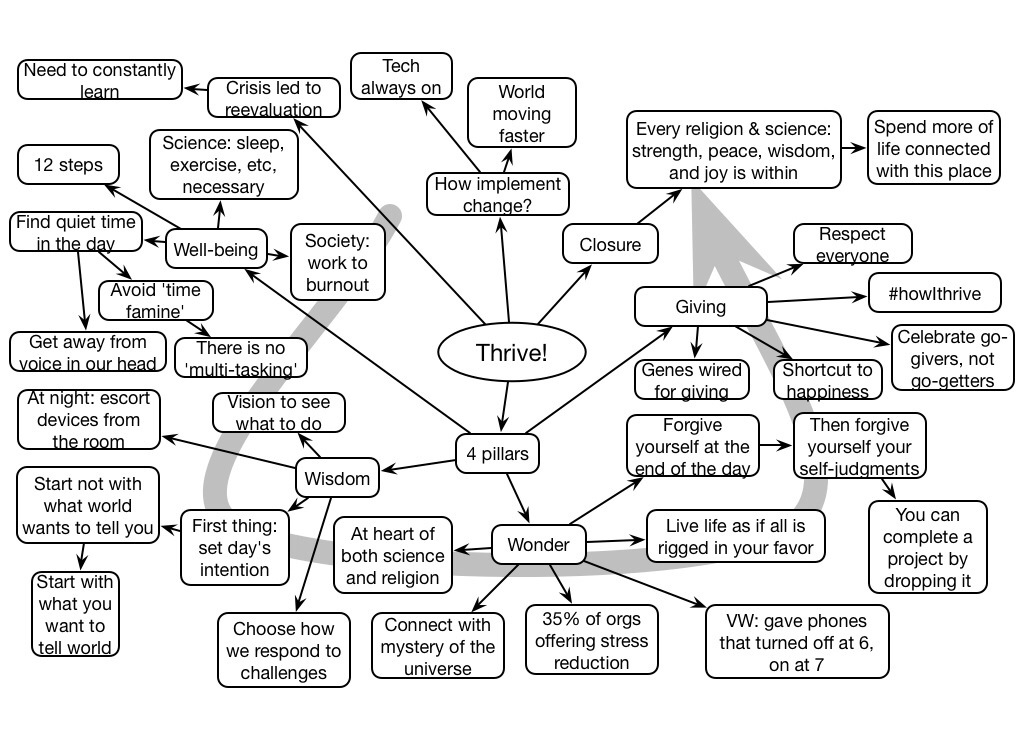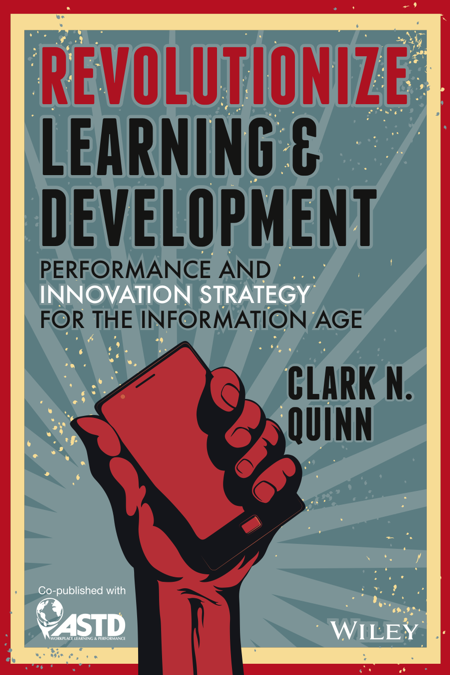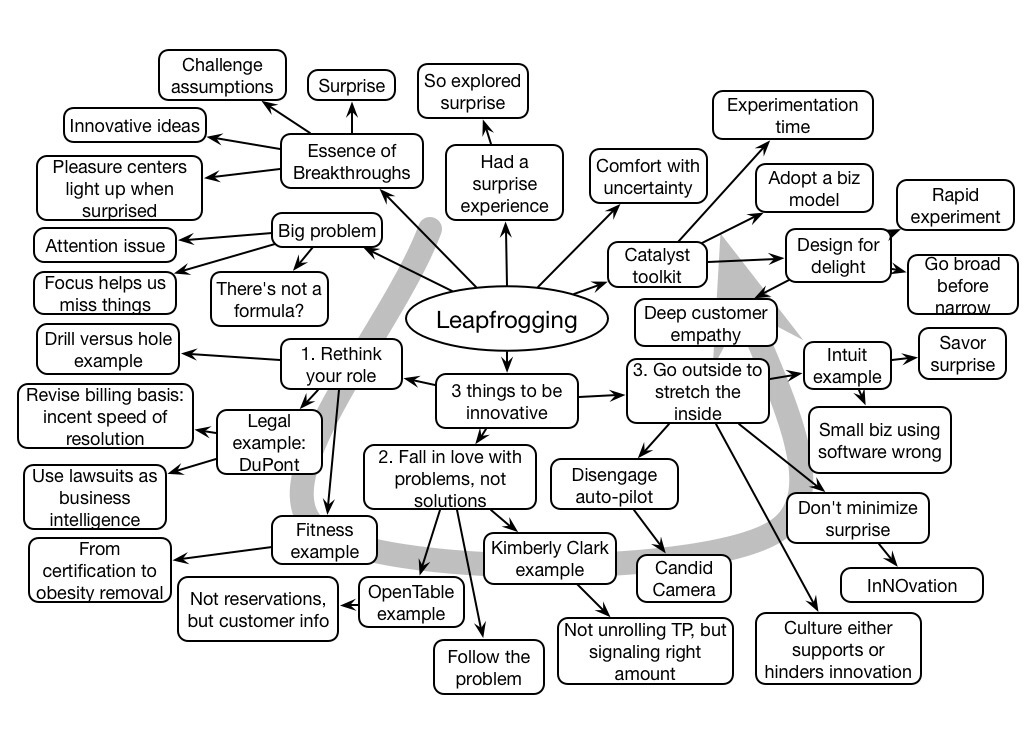Today I attended David Pogue’s #DevLearn Keynote. And, as a DevLearn ‘official blogger’, I was expected to mindmap it (as I regularly do). So, I turn on my iPad and have had a steady series of problems. The perils of living in a high tech world.
First, when I opened my diagramming software, OmniGraffle, it doesn’t work. I find out they’ve stopped supporting this edition! So, $50 later (yes, it’s almost unconscionably dear) and sweating out the download (“will it finish in time”), I start prepping the mindmap.
Except the way it does things are different. How do I add break points to an arrow?!? Well, I can’t find a setting, but I finally explore other interface icons and find a way. The defaults are different, but manage to create a fairly typical mindmap. Phew.
So, I export to Photos and open WordPress. After typing in my usual insipid prose, I go to add the image. And it starts, and fails. I try again, and it’s reliably failing. I reexport, and try again. Nope. I get the image over to my iPhone to try it there, to no avail.
I’ve posted the image to the conference app, but it’s not going to appear here until I get back to my room and my laptop. Grr.
Oh well, that’s life in this modern world, eh?




